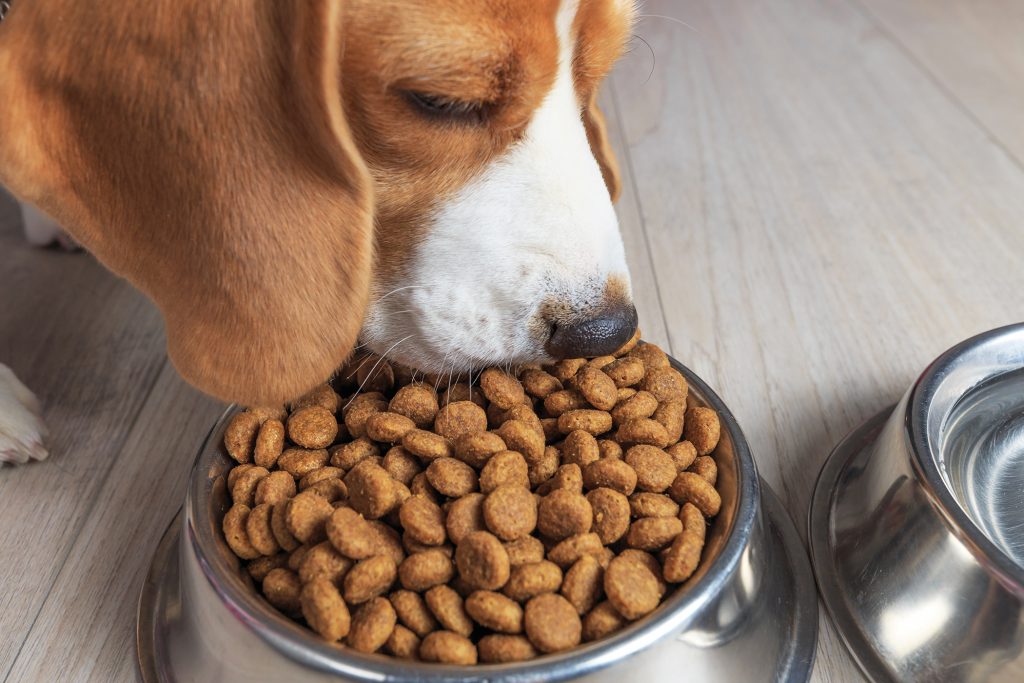
By Goutam Mukherjee, DVM, MS, Ph.D
I tell clients that a puppy’s first visit is not about giving vaccines, flea pills and heartworm preventatives. It is talking about how she will look and function when she is 14 years old. It is about health!
So, what is health? There is no one clear definition. In one Canadian study, good health was defined as an extra seven years of independent living for a human. How do we translate this information to our dogs? We really cannot. I guess we can define it as a mostly active life with minimal disease. Now, how do we achieve this?
Four factors come into mind: Genetics, nutrition, exercise and a stress-free life. Regular readers already know I am a staunch supporter of mixed-breed dogs and I am slightly against commercialization of our treasured companions. Mixed-breed dogs (mutts) have reduced chances of several breed-specific diseases. So, head to the shelter to find your next best friend with broad genetic makeup!
The next big factor is nutrition, my favorite topic! As they say, we are what we eat. Folks usually ask, what’s the best food to feed? My answer is that I don’t know. I am not being facetious – it is an honest answer. We cook for our three dogs. They get separate breakfast, lunch and dinner. I understand that it is difficult for most people to cook meals for their dogs. For store-bought food, I cannot recommend any specific brand, but I have some suggestions.
Go to a pet store and read the ingredients of their cheapest food and the most expensive food and buy something in the middle of the price range. I also ask people not to stick to one kind of food throughout their dog’s life. If possible, switch between different manufacturers especially in these days of numerous dog food recalls.
Then comes the question of how much to feed. Again, my answer is I don’t know! In general, till the puppy finishes growth, keep them a little “chubby” and then when the growth is complete (bigger dogs take longer; smaller dogs, not so long), keep them a little skinny. There are numerous animal and human studies that have demonstrated long-term health benefits of calorie restricted diets (but not starvation).
Gauging food volume depends on their activities. The days they run around a lot, give them some extra, and less on the lazy days. When they reach their senior years, don’t keep them very skinny as I start to worry about muscle loss.
Then comes the question of human food. My answer is I love giving my dogs human food, but I don’t think hot dogs are very desirable human food. I request that people don’t feed their dogs table scrap. However, sharing your steamed veggies (a variety of them) is great; just hold the butter and bacon fat.
Many of my clients feel like they are doing their dogs a favor by giving them extra protein, like chicken and eggs. With modern quality dog food, I don’t think our dogs are protein deficient. I think what they need is fresh fruits and veggies (steamed or sauteed).
A common concern is about toxic food – another difficult question. I feel like grapes, raisins and Xylitol (a sweetener substitute, also known as birch sugar) are absolute no-no’s. However, I don’t hesitate to give my dogs a tiny bit of chocolate or cook their food with a little onion and garlic. This second group falls under the dose-dependent category. Too much dark chocolate can be a real problem. At this point, one can easily ask, do dogs really need to have chocolate? Well, the dogs might say, do humans really need to have caviar? Just little luxuries in life!
There are long lists of human food items that are supposedly “toxic” to dogs. Well, I am a contrarian. I don’t see any issues with ripe avocados, ripe tomatoes, and so on and so forth. I am, however, opposed to giving them processed meat products like lunchmeat, as well as fats like bacon grease, chicken fat, etc. Anyway, before giving your dogs anything other than just plain old dog food, you should consult with your veterinarian.
Next time, we can talk about toys, play time and fenced areas to finish up this discussion.
Goutam Mukherjee, DVM, MS, Ph.D. (Dr. G) has been a veterinarian for more than 30 years. He owns High Falls Holistic Veterinary Care near Geraldine, Alabama. To suggest topics for future discussions, email him at [email protected]




